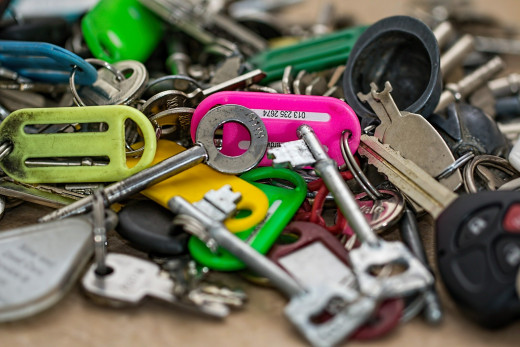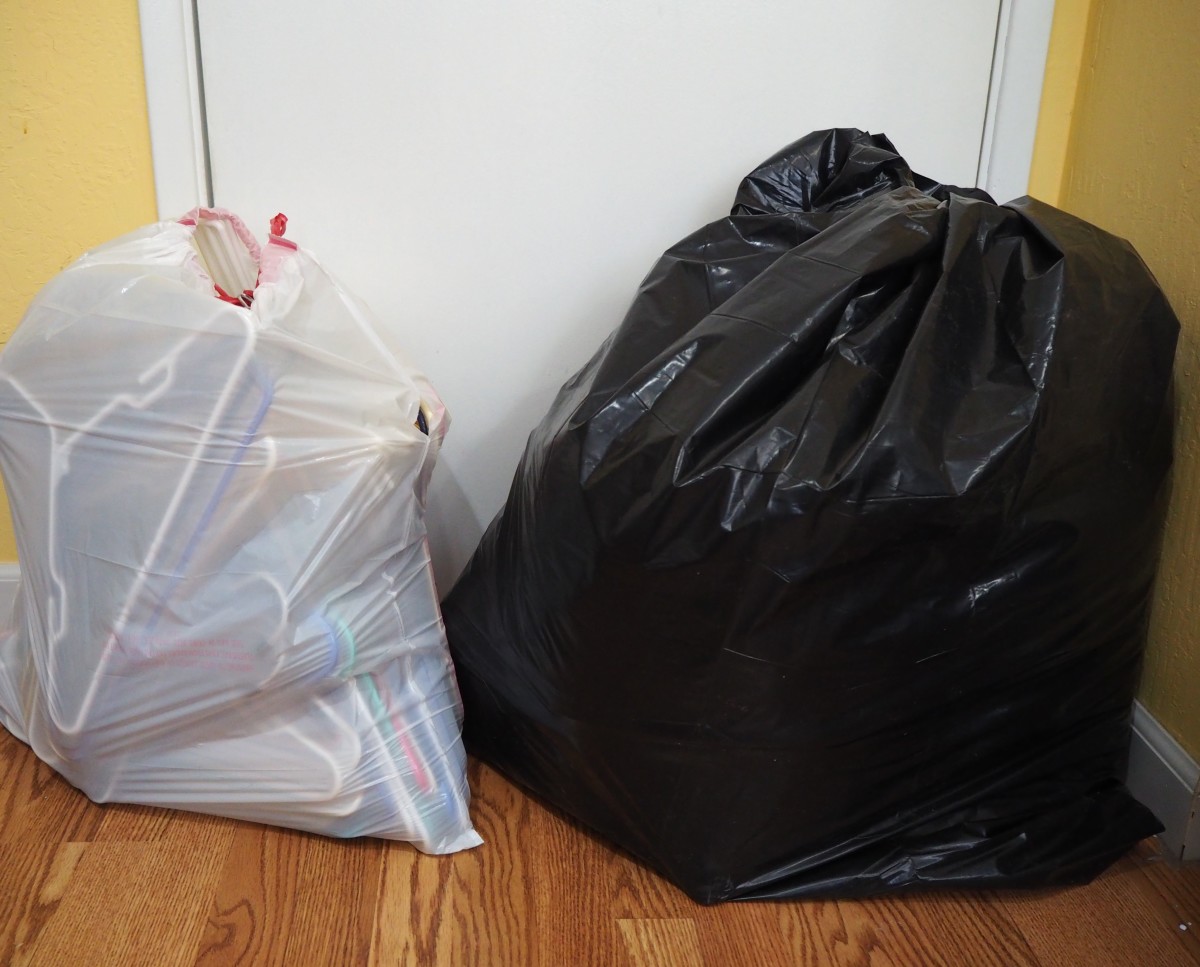- HubPages»
- Home and Garden»
- Cleaning»
- Organizing & Decluttering
Why You Struggle to Declutter
Keep It or Let It Go?
You want to get organized and clear some of the clutter that leaves you feeling stressed in your own home. And, when you start decluttering, you find plenty of things that can go into the trash, recycling, or your donation box.
Then, you pick up an item and hesitate. You can’t decide what to do with it. You think that you should hold onto it just in case or because it was a gift or …. Reasons for keeping the item flood your mind. So, you set the item aside. It’s just one thing and you can always decide to donate it later.
But, then, you set another item aside and then another. After hours of decluttering, you step back and realize that you don’t see the dramatic difference you expected.
You feel discouraged. Are you bad at decluttering? Should you hire a professional organizer so they can tell you what to do? Do you really need to hold onto all the things you convinced yourself you should keep?
What's Your Reason for Keeping That?

Holding Onto Stuff Because of What It Cost
There’s more than one reason for holding onto items. You probably assign a reason (or two) to each item you decide to keep. However, if you want to create clearer spaces in your home, you need to question those reasons. The money you spent (or didn’t spend) on an item can leave you thinking that keeping it makes sense.
“It was free.” If you don’t need, want, or use an item, it doesn’t matter what it cost. Free items could be promotions from businesses that want to keep their name in your mind. Or, maybe someone was trying to get rid of the item and gave it to you (or you scooped it up, convinced it was a bargain).
“It’s worth a lot of money.” Have you had it appraised recently so you can put a proper amount of insurance on it? My mother was forever pointing out a vase in my grandfather’s house that was an antique “worth money.” I was offered ten dollars for this inheritance.
The Real Reason Behind Your Clutter
According to professional organizer Barbara Hemphill, Clutter is delayed decisions.
Holding onto Stuff Because You Feel Guilty
You can feel guilty about getting rid of items for numerous reasons. However, I discovered during my own decluttering journey that once I made the decision to get rid of something, the guilt went away because I knew the item no longer belonged to me.
“It was a gift.” A gift is someone’s way of showing that they were thinking of you and wanted to show they cared. Giving you the gift allowed the individual to do those things. If you don’t use or like the item, you don’t need to keep it. A gift isn’t an obligation.
“I bought it but never used it.” You may feel guilty for spending money on something you’ve never used. However, keeping it doesn’t use up the item’s value. Donate it so someone can use and appreciate it. That’s what the item was made for.
The First Reason You Come Up with for Keeping Something May Not be the Best Reason

Holding onto Stuff Because You Feel Obligated
Feeling obligated to hold onto something can also apply to all the other reasons I’ve listed in this article. Take a step back and question why you feel this way. Remember, an obligation is about the other person’s expectations (or what you think the other person’s expectations are) as opposed to what you want.
Once you focus on your needs and wants, you’ll realize that have clearer spaces at home is more important to you than an item you don’t use or like.
“I might use it someday.” When? And, how? If you can list a specific use and know when you’ll use the item, then that’s very different from thinking you might use something.
“I’m keeping this for someone else.” You might feel that you need to hold onto pieces of furniture, dishes, toys, trophies, etc. that belonged to your children or that you think they could use someday. Ask them about the items. You don’t have to be the conservator for someone else’s stuff unless it’s clear that they do want the items and that they will take them by a certain date.
Your Items May be Ready for a New Owner

Holding onto Stuff for Sentimental Reasons
Some items that you’re holding onto may reflect personal achievements, events and activities you attended, or family history. Sentimental items are that last thing that you should declutter from your home.
Why? Because by the time you get around to these items, you’ve got in the habit of questioning the value and use of other items around your home. You’ll have a clearer sense of what’s important to you.
Do you need to hold onto an item to trigger the memories attached to it? Or, could you take a photo of the item or perhaps keep a token (a scrap of fabric from a dress or a teacup from a set)?
If an item is important to you, consider displaying it.
Collect other items in a memory box. When you group all your keepsakes in one place, you may be surprised by how many knickknacks you were holding onto. That can also help you question the important of each item.
Keep the Best
If everything is important; then nothing is.
Make Decisions about the Things Cluttering Your Spaces
Decluttering can feel overwhelming in the beginning because you have a lot of stuff to make decisions about. Making those decision, though, is a relief. Each decision you make helps you clarify what’s important to you and your life and what isn’t.
A decision made about one item make it easier to decide what to do with the next item. Instead of pushing an item aside, thinking you’ll figure out what to do with it later, take the time to examine your reasons for keeping it or releasing it.
Although you may work more slowly in the beginning, over time you’ll realize that some of the same reasons will apply to many items and you’ll be able to work faster.
Decluttering not only clears your space but also your thoughts and feelings about the things around you.








